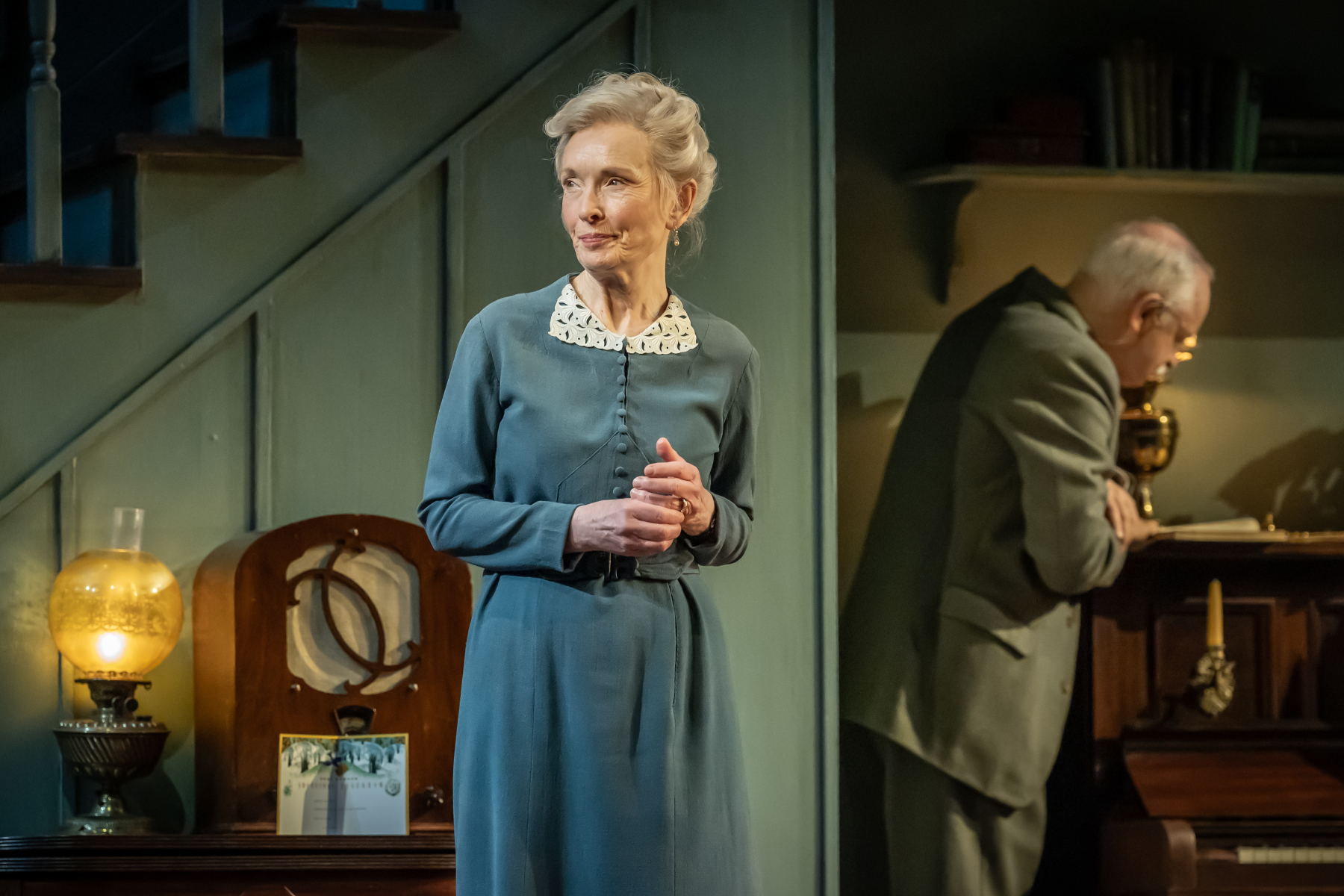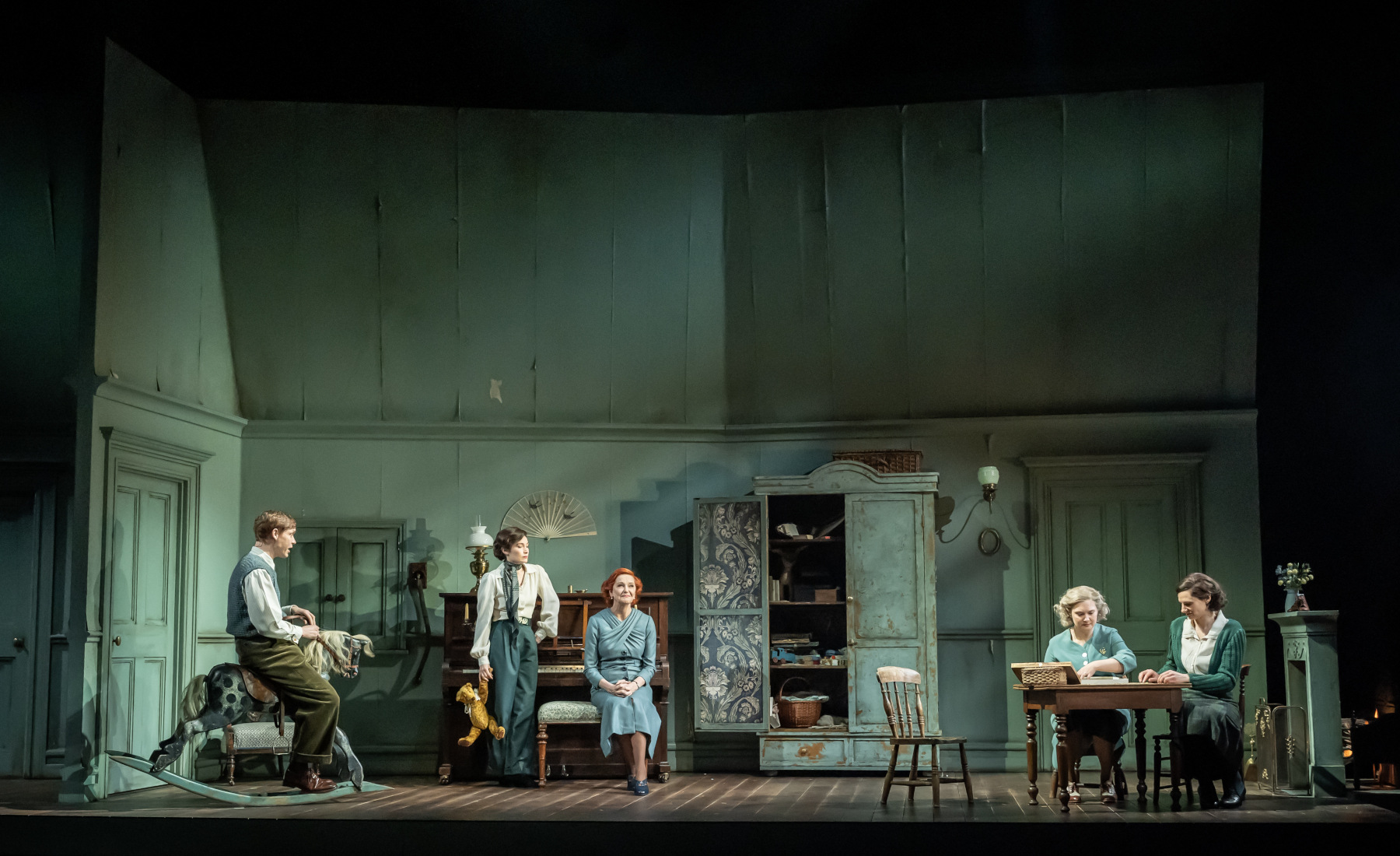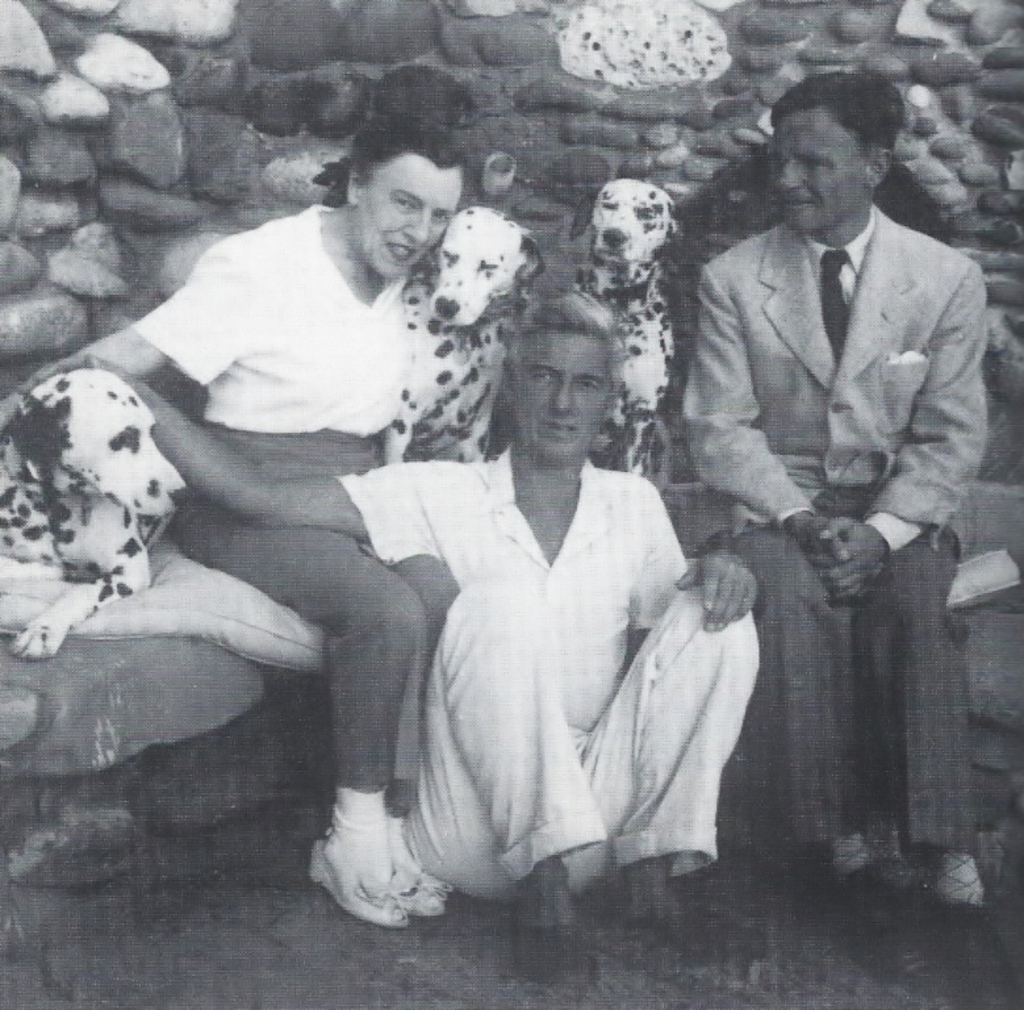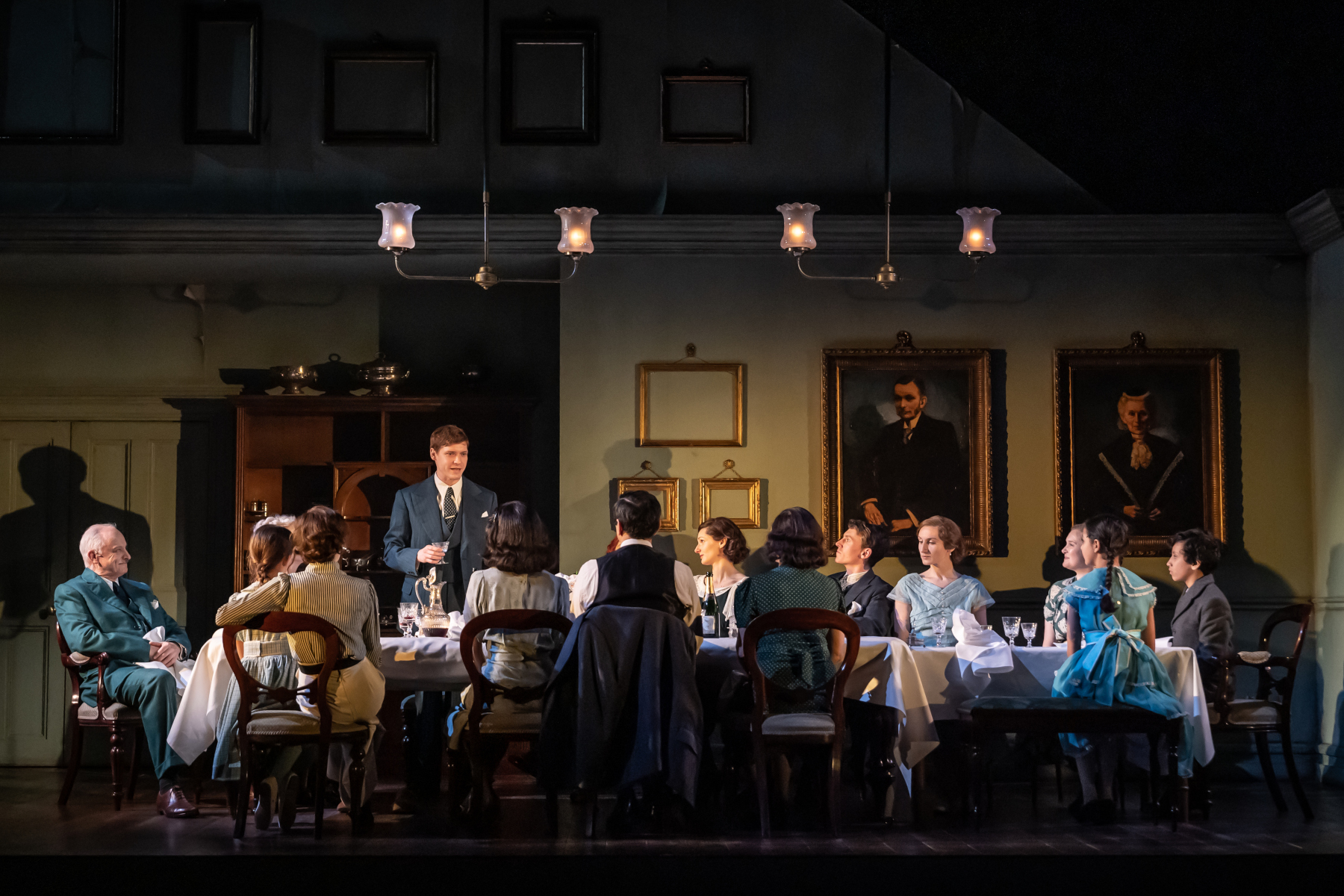Judith Schrut reviews the National Theatre’s Dear Octopus, Dodie Smith’s acclaimed but rarely performed 1938 play.
Does the name Dodie Smith (1896-1990) ring any literary bells for you? If no, you’re not alone. If yes, it’s likely because she’s the author of the beloved 1956 children’s classic (and later, Walt Disney megahit), The 101 Dalmatians.
But what you may not know is that Dodie-before-Dalmatians was renowned for her hugely successful and popular plays. The most famous of these, Dear Octopus, written and set in a tense, 1938 pre-war Britain, has just opened at London’s National Theatre. The play is rarely performed; this is its first revival since the 1960s. It’s had glowing reviews. I’m happy to add mine here.
On the surface, Dear Octopus is the story of ageing middle class couple Dora and Charles, whose 50th wedding anniversary celebrations on the eve of World War II reunite four generations of family, some of whom have not been in touch for a very long time.
The play takes place in the family’s large country house. War looms ominously in the air, on the radio, from perpetually smoking fireplaces. Anxiety, uncertainty and mortality are ever-present. Portraits of deceased family members hang on the walls, alongside many more conspicuously empty frames. We sense that no one quite knows when they will take their place in a frame.
Although here for a celebration, no one seems particularly joyful – with the exception of ageing matriarch Dora, whose happiness derives from giving orders to, and obsessively organising and re-organising, family members and domestic staff. Yet they, and the audience, can’t help but warm to her. Perhaps that’s because she’s played by the always magnificent Lindsay Duncan, an actress I could happily watch swatting flies (and who was most recently stunning in AppleTV’s Truelove).

If you like theatre packed with action and heavy plot twists, you will be disappointed. Instead, Dodie Smith gives us a carefully observed portrait of a family relationship at a certain time, its loyalties and alliances, sibling rivalries and cattiness, extra-marital-flings and tragedies. Two offspring have died before their time; a once-favourite daughter returns after seven years silence with dark secrets. Emotional distance is a given: parents and children shake hands or air-kiss and the war-hero son’s widow addresses her mother-in-law as ‘Mrs’. The threat of a devastating war hangs over everything.

Plays like this may seem aimed straight at LB40 audiences. I’m always wary of sentimentality and clichés, especially those about ageing, but I’m pleased to say that didn’t bother me here. Instead, I found the show charming, touching, warm, familiar, funny…sometimes hilarious. The audience laughed loudly and often. As well as Ms Duncan, the cast was outstanding; the period design, costumes and staging were spot on.
Sure, the play is sentimental, nostalgic, plot and action-light, outdated and not especially earth-shattering, but the production makes no pretence about this. All may seem old-fashioned on the surface – or maybe that’s the point. Below simmers stuff we modern audiences are familiar with – powerful themes like birth, ageing and death, secrets and lies, unrequited love and above all, as Nicholas (played by the dashing Billy Howle) aptly toasts, “The family, the family, that dear octopus from whose tentacles we never quite escape nor in our inmost hearts ever quite wish to.”

While prepping to review a play I knew little about, I learned of Dodie Smith’s fascinating backstory. Dear Octopus echoes her own multi-generational upbringing. An only child whose father died when she was a baby, Dodie moved with her mother into the maternal family household filled with grandparents, aunts, uncles and maids, a unique chance to observe adult relationships.
Prior to becoming a writer, she ran the art gallery at Heal’s Department Store – a post which came to include being mistress to the boss, Ambrose Heal. Mr. Heal played a key role in Dodie’s transition to playwright; he gifted her the typewriter she used to write her first play. It was an overnight sensation.
She also met her future husband while working at Heal’s. They had no children but were massive dog lovers. Amongst their brood were nine Dalmatians including a real ‘Pongo’.
The original Nicholas in Dear Octopus was written for and played by a dashing, young John Gielgud, already at the height of his career aged 34, after he intimated to his good friend Dodie his difficulty in finding roles apart from Shakespeare and other classics.
Dear Octopus opened on 14 September 1938 to huge acclaim and sell-out crowds; the King and Queen were big fans. It ran for a record 370 performances, going dark just under a year later like all the West End, when Germany invaded Poland on 1 September 1939. Great Britain and France declared war on Germany two days later.
Dear Octopus is at the National Theatre’s Lyttleton stage until 27 March 2024.
Tickets £20 – £99. Midweek matinee discount available for over 60s
For more information and tickets click here
Production images courtesy National Theatre Press Office, copyright Marc Brenner.





